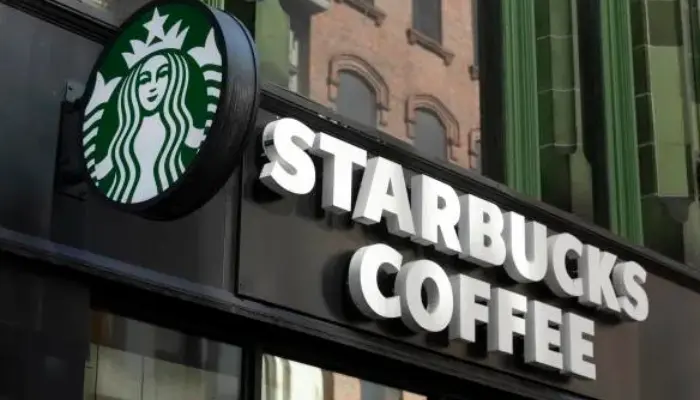On February 24, Russia declared war against Ukraine, immediately awakening unimaginable threat amongst entities around the world–but what would come after is a horrifying realisation of events beyond the war itself – the exodus of companies from Russia.
Global behemoths and MNCs across industries – from finance, professional services, and consumer goods, to food, retail, and tech – all were in unison to withdraw operations in Russia as a form of condemnation even if massive consequences to business are afloat.
But what if the tables are turned, as in a Russian-origin brand continuing to play in the global market? While Russian consumer goods do not necessarily have strong positions in the international market, there is one brand that stands as an exception in the current geopolitical tensions – Kaspersky, the leading cybersecurity solutions company founded in Russia that currently holds a global presence.
Global brands that operated in Russia found themselves tested against moral and business judgement. The pressure to pull out from the market loomed over companies at the beginning of the war, and the undertaking had been far from seamless as it blew companies’ finances such as Shell whose exit from the market would cost it $4b to $5b.
Meanwhile, those that decided to stay, mostly citing humanitarian reasons such as their products being a necessity, endured the risk of backlash and boycott, such as Japanese apparel Uniqlo which previously wanted to keep its Russian stores to continue providing clothing to Russians.
Without a doubt, it hadn’t been easy at all for brands with Russian ties, but on the flip side, how does it pan out for someone with Russian origins playing against the global market?
The Russian-founded global brand
For Kaspersky, the cybersecurity and anti-virus solutions provider whose roots find itself in Russia, there definitely had been a marketing challenge amidst the current geopolitical tensions, although the brand admits it wasn’t until the war that people found of its origins.
Mark Opao, the communications planning partner of the brand for APAC, Middle East, Turkey, and Africa, spoke to MARKETECH APAC and said that Kaspersky had always been positioned not as a Russian brand but as a global cybersecurity brand and that it had been a surprising learning that not all of its consumers in APAC are knowledgeable of its heritage.
Nonetheless, the brand was not freed of the risk of boycotts, where several companies decided to part ways with some of its long-standing vendors and partners in the business.
“To a certain extent, [we experienced boycott]…unfortunately the reasons for these actions were mainly driven by the geopolitical tensions in general,” said Opao.
Regaining the trust of consumers
As the collateral damage to brands continues to unfold, Opao said that the biggest challenge for the software brand right now is regaining the trust of its consumers and enterprise partners.
Despite Kaspersky being a British registered company, and each local office being a legal entity, Opao said they are “unfortunately stuck in the middle of a geopolitical clash that undermines brand trust and business.”
For other Russian-origin brands, the case is quite different. Most of the Russian firms with renowned cross-border presence are those tied to the state such as energy giant Gazprom and its national air carrier Aeroflot who simply cut ties with several countries allegedly as a retaliation for the global sanctions placed upon them, and reportedly due to business challenges amidst the war. Kasperksy is one of the several companies of its nature that continued to market to general and business consumers.
In the wake of these unprecedented marketing challenges, Opao believes that a product’s quality and value will outstand whatever disruptions a brand may find itself battling.
“I always believe that a good product doesn’t even need to be advertised,” he said.
For Kasperksy, it is confident of the quality and expertise it has proven globally throughout the years but said that teams continue to keep their guard up, working closer than ever in responding to the developments of the geopolitical conflict in terms of re-prioritizing its markets, its marketing channels as well as its communication messages.
“Our transversal approach to managing this current crisis – from product marketing, e-commerce, and digital media to CXO, PR, and brand communication teams – provides agility and flexibility in adjusting our marketing efforts holistically,” said Opao.
Going back to the core of marketing – the consumer
As the communications planning partner of the brand, Opao currently manages Kaspersky’s growth regions. He said that during this time when external political and macroeconomic factors continue to push pressure on brands, it is important for marketers to always look back at the core of any marketing activity- the consumer.
Opao said that the key is to have a level-headed mindset and keep acting and thinking in accordance with what would benefit or possibly hurt a company in the long run.
“Let me start by saying that there’s always an end to every crisis. During these types of uncertain [and] unprecedented challenges, the key is to not panic and make hasty short-term decisions,” he said.
“Amidst the external political and macroeconomic factors affecting us as a company, we need to focus first on what our consumers and enterprise customers need in a cybersecurity solution and use that as a springboard to develop solutions and communications that are relevant to them,” adds Opao.
Ultimately, he said that no matter the struggles, the “backbone must remain strong,” but that this would require teams to tackle the challenges together rather than working in silos.
This story is published under ‘The Inner State’, MARKETECH APAC’s dedicated industry deep-dive.




